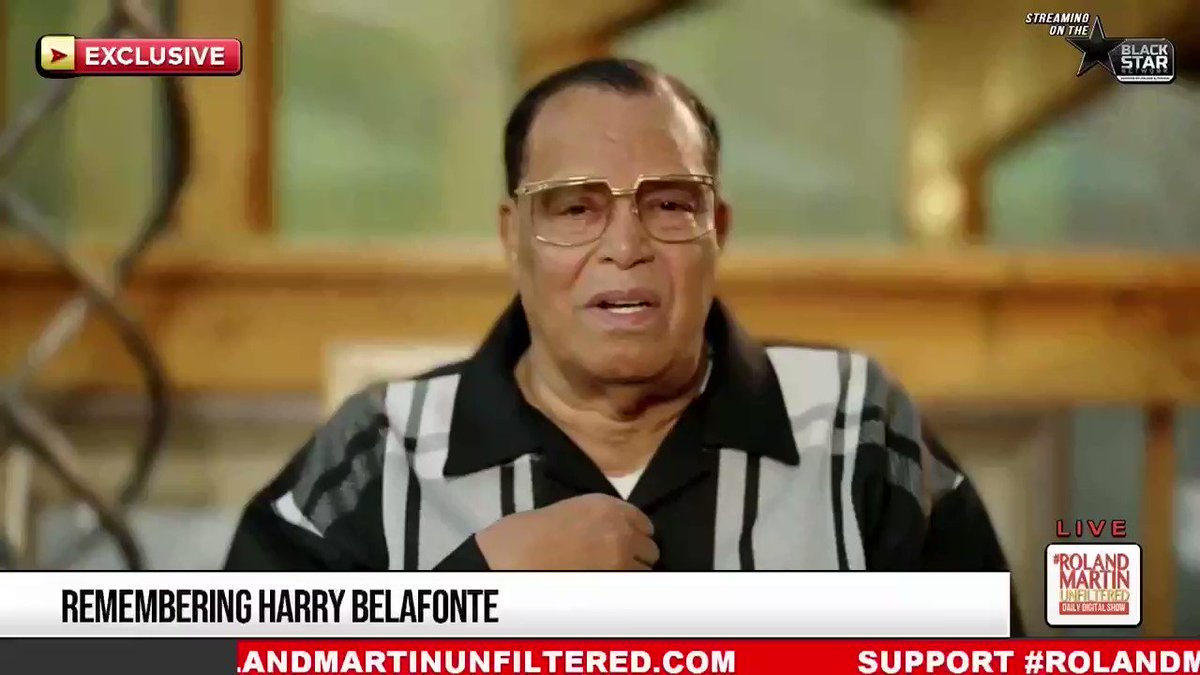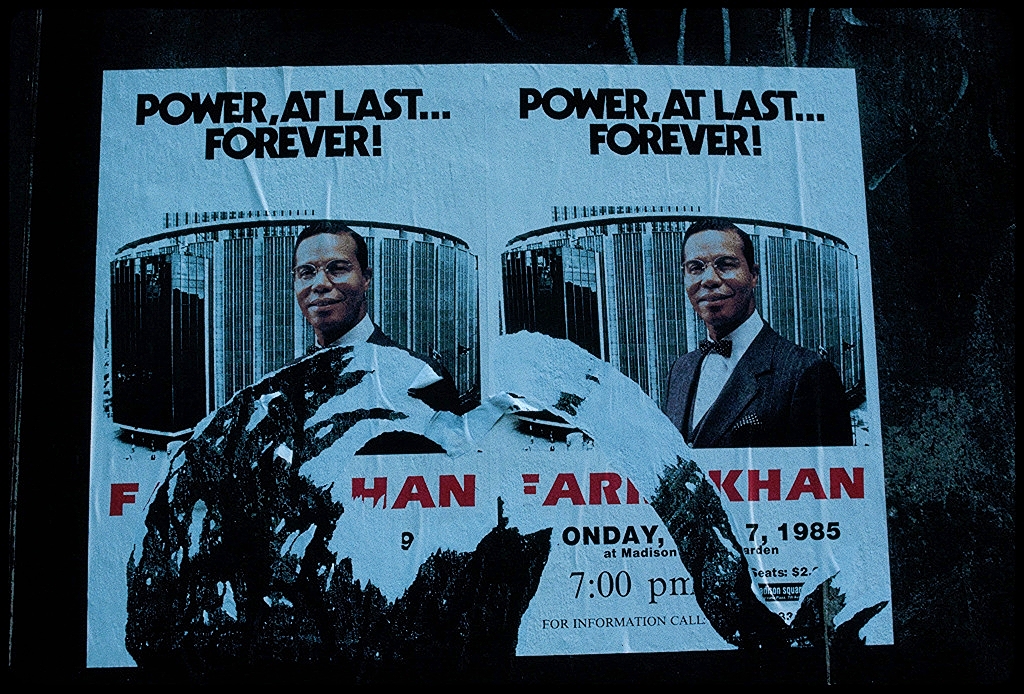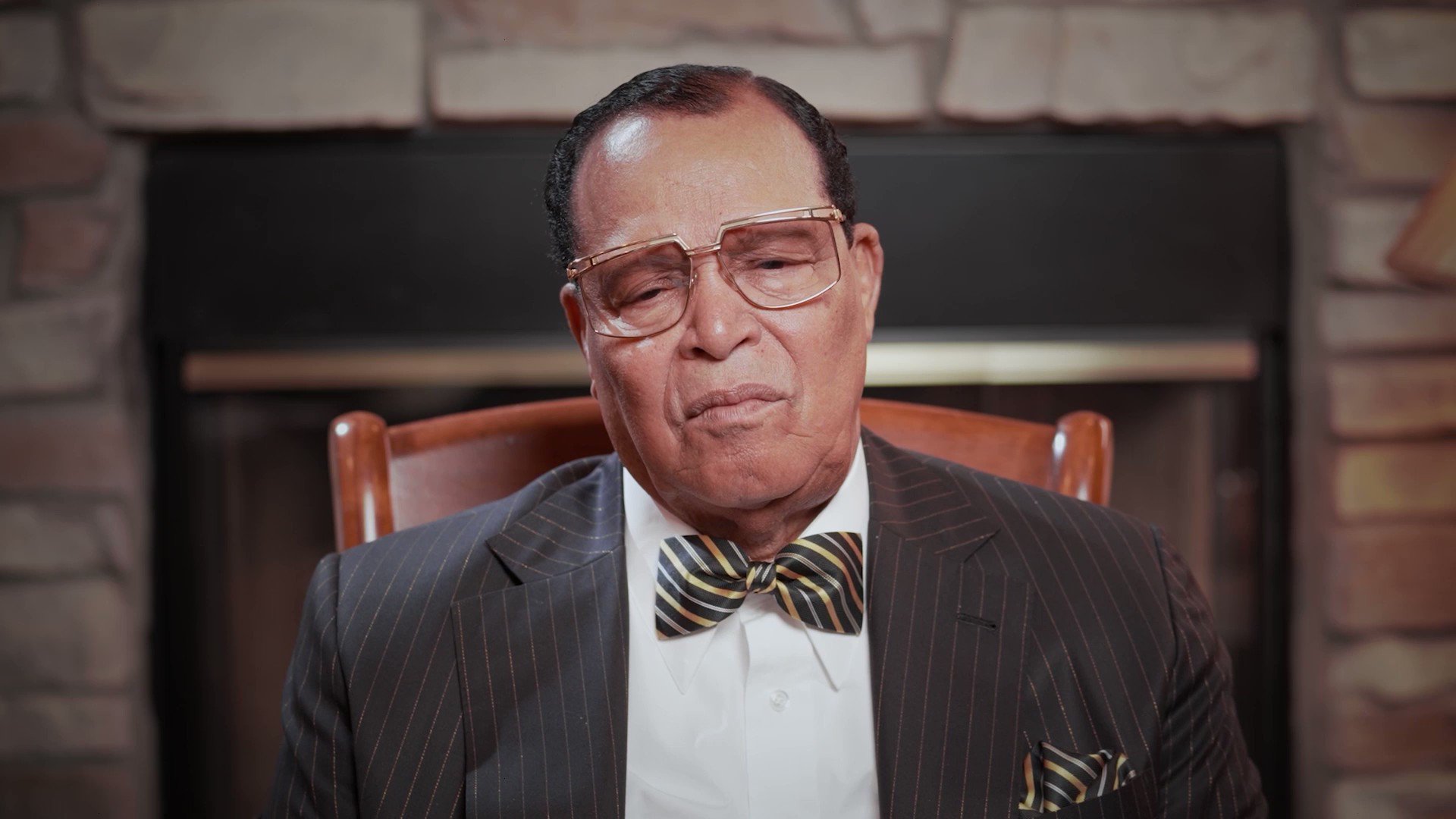Louis Farrakhan: A Voice That Shaped A Generation
When you talk about influential figures in African American history, Louis Farrakhan's name always comes up. He's not just a leader; he's a symbol of resilience, empowerment, and cultural awakening. Over the years, Farrakhan has been both celebrated and criticized, but one thing's for sure—his impact on American society is undeniable. Whether you agree with him or not, his legacy continues to shape conversations around race, religion, and social justice.
Now, let's dive into why Farrakhan matters. This dude's life is like a book with so many chapters, each one packed with lessons, challenges, and triumphs. From his early days as a musician to becoming one of the most prominent voices in the Nation of Islam, Farrakhan's journey is nothing short of remarkable. So grab a cup of coffee, and let's explore the fascinating world of this iconic figure.
If you're here, chances are you want to know more about the man behind the headlines. Well, buckle up because we're about to take a deep dive into his life, beliefs, and the controversies that have surrounded him. By the end of this article, you'll have a clearer understanding of who Louis Farrakhan really is and why his work continues to resonate with people worldwide.
- Is Val Sweeting Married The Fascinating Journey Of A Curling Champion
- Karlye Taylor Nudes Separating Facts From Fiction And Exploring The Bigger Picture
Table of Contents
- Biography
- Early Life and Background
- Rise to Fame
- Religious Beliefs
- Political Impact
- Controversies
- Legacy
- Contribution to Social Justice
- Inspiration for Future Generations
- Summary
Biography
Before we get into the nitty-gritty, let's break down who Louis Farrakhan really is. Born Louis Eugene Walcott on May 11, 1933, in the Bronx, New York, Farrakhan's life has been a tapestry of transformation and activism. He didn't start out as a religious leader; in fact, his early career was in music. But life has a funny way of steering people toward their true calling, and for Farrakhan, that calling was the Nation of Islam.
Here's a quick rundown of his life in numbers:
| Born | May 11, 1933 |
|---|---|
| Birth Name | Louis Eugene Walcott |
| Place of Birth | Bronx, New York |
| Religion | Nation of Islam |
| Occupation | Minister, Activist, Speaker |
Early Life and Background
So, how did Farrakhan go from being a kid in the Bronx to becoming a global figure? Well, it all started with his upbringing. Louis Farrakhan was raised by his mother, Sarah Mae Manning, after his parents separated when he was just a toddler. His early years were filled with challenges, but Farrakhan always had a knack for standing out. In high school, he was a star athlete and a gifted musician, playing the violin and singing in the choir.
But life took a different turn when he met Elijah Muhammad, the leader of the Nation of Islam. This meeting would change everything for Farrakhan. He was drawn to the teachings of the Nation of Islam, which focused on self-empowerment, racial pride, and economic independence. And just like that, Farrakhan found his true path.
Rise to Fame
Once Farrakhan joined the Nation of Islam, things started moving fast. He quickly rose through the ranks, becoming one of the most prominent ministers in the organization. His charisma and ability to connect with people made him a natural leader. Farrakhan wasn't just a preacher; he was a visionary who saw the potential for change in every person he met.
One of the biggest moments in his career was organizing the Million Man March in 1995. This event brought together African American men from all walks of life, promoting unity, accountability, and self-improvement. It was a game-changer, and Farrakhan was at the forefront, leading the charge.
Religious Beliefs
Now, let's talk about Farrakhan's religious beliefs. As a minister in the Nation of Islam, he preaches a message of self-reliance, discipline, and spiritual awakening. The Nation of Islam believes in the importance of African Americans reclaiming their heritage and building strong, self-sufficient communities.
Some of the core principles of the Nation of Islam include:
- Emphasizing the importance of education and economic empowerment.
- Encouraging African Americans to take pride in their culture and history.
- Promoting peace and understanding between different communities.
While Farrakhan's teachings have inspired many, they've also been the subject of debate and criticism. But one thing's for sure—his message has resonated with countless people who are searching for a sense of identity and purpose.
Political Impact
When it comes to politics, Farrakhan's influence is undeniable. He's been a vocal critic of systemic racism and inequality, using his platform to bring attention to issues affecting African Americans. His speeches often tackle topics like police brutality, economic injustice, and political disenfranchisement.
One of the things that sets Farrakhan apart is his ability to mobilize people. Whether it's through rallies, marches, or public speaking engagements, he has a way of getting people fired up and ready to take action. His political impact extends beyond the Nation of Islam, influencing leaders and activists across the board.
Controversies
Of course, no discussion about Louis Farrakhan would be complete without addressing the controversies that have surrounded him over the years. Love him or hate him, Farrakhan's words and actions have sparked heated debates. Some of the biggest controversies include accusations of antisemitism, inflammatory rhetoric, and his stance on certain social issues.
But here's the thing—Farrakhan doesn't shy away from controversy. He's unapologetically himself, and that's part of what makes him such a polarizing figure. Critics may disagree with his views, but there's no denying that he's sparked important conversations about race, religion, and power dynamics in America.
Legacy
So, what's the legacy of Louis Farrakhan? Well, it's complicated. On one hand, he's been a trailblazer for African American empowerment and social justice. On the other hand, his controversial statements and actions have left a lasting mark on his reputation. But one thing's for sure—Farrakhan's impact on American society is undeniable.
His work with the Nation of Islam has helped countless people find their voices and reclaim their identities. He's inspired generations of activists, leaders, and everyday folks to stand up for what they believe in. And while the road ahead may be rocky, Farrakhan's legacy continues to shape the conversation around race and equality in America.
Contribution to Social Justice
When it comes to social justice, Farrakhan's contributions are significant. He's been a vocal advocate for civil rights, economic empowerment, and community building. Through his work with the Nation of Islam, he's helped create programs that address issues like education, healthcare, and job training for African Americans.
One of the most impactful initiatives he's been involved in is the "Million Father March," which encourages fathers to take an active role in their children's education. This program has had a positive impact on countless families, promoting accountability and responsibility within the community.
Inspiration for Future Generations
So, what can we learn from Louis Farrakhan? Well, for starters, he's a reminder that change doesn't happen overnight. It takes hard work, dedication, and a willingness to challenge the status quo. Farrakhan's life is a testament to the power of resilience and the importance of standing up for what you believe in.
For young people today, Farrakhan's story is a source of inspiration. He shows us that even in the face of adversity, we can make a difference. Whether it's through activism, leadership, or simply living our lives with purpose, Farrakhan's example reminds us that we all have the power to create change.
Summary
Let's wrap things up. Louis Farrakhan is more than just a leader; he's a symbol of resilience, empowerment, and cultural awakening. From his early days as a musician to his rise as a prominent figure in the Nation of Islam, Farrakhan's journey has been nothing short of remarkable. While his legacy is complex and often controversial, there's no denying his impact on American society.
So, what can you do? If you're inspired by Farrakhan's work, consider getting involved in your community. Whether it's through activism, volunteering, or simply having conversations about race and equality, every little bit helps. And hey, why not share this article with your friends? The more people know about Farrakhan's legacy, the better equipped we'll be to tackle the challenges of tomorrow.
Thanks for reading, and remember—change starts with you!
- Camilla Araujo Leaked Onlyfans The Full Story You Need To Know
- Karlye Taylor Nude The Truth Behind The Controversy And Clickbait

THE HONORABLE MINISTER LOUIS FARRAKHAN on Twitter "Love yourself. Love

West Philadelphia Collaborative History Louis Farrakhan

THE HONORABLE MINISTER LOUIS FARRAKHAN on Twitter "Resist the devil